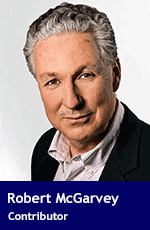 In five short months, Donald Trump has turned the world upside down. So what kind of new world order can we expect?
In five short months, Donald Trump has turned the world upside down. So what kind of new world order can we expect?
Trump has attacked NATO (questioning its very existence), shredded trade agreements like the North American Free Trade Agreement (NAFTA) and the Trans-Pacific Partnership (TPP), and withdrawn the U.S. from the Paris climate change agreement. He’s insulted allies, embraced brutal dictators and promised to put American interests first and foremost.
It’s a far cry from the magnanimous worldview of former U.S. president John F. Kennedy in the 1960s and a radical departure from the post-Second World War norm.
However, the new world order Trump has blundered upon still resembles the old world order, with one major difference. Trump has made it clear that the United States is no longer willing to carry the leadership burden or foot the bill.
Western leaders have begun to realize that this radical departure is not simply another late-night musing of The Donald. It represents the views of significant numbers of frustrated and angry Americans.
You can feel backs stiffening around the Western world.
German Chancellor Angela Merkel stated the obvious: “The times in which we could completely depend on others are, to a certain extent, over. … We Europeans truly have to take our fate into our own hands.”
Canadian Foreign Minister Chrystia Freeland delivered Canada’s most assertive foreign policy declaration in decades to the House of Commons. Canada will change its role and increase its military spending to help fill a Trump-induced vacuum in global leadership.
But what kind of world order are we trying to build?
The 70-year post-war era was dominated by the United States. After the collapse of Nazi Germany in 1945, the U.S and its Allies essentially reinvented the western world.
The subsequent world order was built on U.S. military, economic and ideological power. The U.S. was the driving force and de facto leader, not just of NATO, but of a host of post-war institutions like the World Bank, the International Monetary Fund and the World Trade Organization.
After the collapse of Soviet communism in the late 1980s, the ‘free world’ seemed to be ascendant. There was a strong belief in the 1990s that the final ideological battle had been won and the values and institutions that defined the West would naturally become the governing fundamentals of the entire planet.
That rosy assumption turned out to be almost entirely wrong.
Globalization of the world economy based on the Washington Consensus turned out to be a gift to multi-national corporations that could place their production in low-wage economies with no unions, no environmental restrictions and no messy human rights concerns. Trade agreements insured free entry of these goods to western markets.
This resulted in lost jobs and the hollowing out of the manufacturing base of many developed economies. And that turned many people against globalization.
On the political front, many peoples around the world rejected western-inspired progressive initiatives like LGBTQ rights. Muslim fundamentalists, in particular, not only reject democracy and western values but have launched a holy war against them that has brought bloody terror to the streets of Paris, London and other western cities.
On the military front, Russia and China are emerging as great powers. Russia never really accepted its second-class status after the fall of the Soviet Union. The Russian annexation of Crimea and its aggressive military intervention in Syria form part of a larger super-power role President Vladimir Putin is shaping in defiance of the western world-view.
So what should the western response be?
Western leaders could do worse than restoring the West as it existed before the collapse of the Soviet Bloc.
Western values for westerners has a nice ring to it. And, although insular, it frees western powers from intervening around the world to promote values that don’t have local support. Let the rest of the world make their own value choices. It sure beats fighting neo-colonial wars in distant lands.
Redrafting trade agreements so they serve the interests of western economies would also have growing support. Free-trade agreements and globalization have not served the interests of the western middle classes and many (quietly) support Trump’s plan to blow them up.
The bottom line is that western civilization is not a universal culture. We need to accept our limitations and start taking care of our own.
Making the world over in our image is not only too great a burden for the United States, it’s a fool’s errand for the rest of us.
Robert McGarvey is an economic historian and former managing director of Merlin Consulting, a London, U.K.-based consulting firm. Robert’s most recent book is Futuromics: A Guide to Thriving in Capitalism’s Third Wave.
Robert is a Troy Media contributor. Why aren’t you?
The views, opinions and positions expressed by columnists and contributors are the author’s alone. They do not inherently or expressly reflect the views, opinions and/or positions of our publication.


